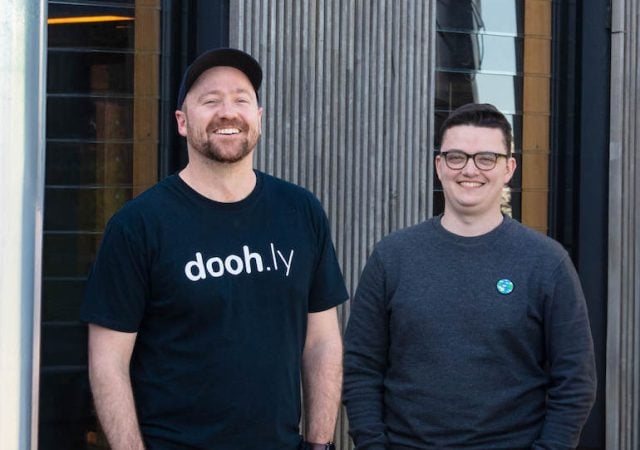● Increases to the sophisticated investor qualification thresholds are planned
● The startup sector is worried it will dramatically cut access to early stage investment capital
● Floated changes increase the thresholds by 80% after 22 years
● Around 16% of Australians currently qualify
● The bigger issue is education for investors
● A broad range of investment anomalies remain unaddressed for retail investors
There’s a particular irony in the fact that many of the people making decisions on what startups a VC fund invests in – the industry’s gatekeepers – are not “sophisticated” in the eyes of the Australian government.
Truth is capital allocation decisions worth billions are made every year by those who don’t qualify as sophisticated/wholesale investors, and they’re doing it with Other People’s Money, not their own.
The political mindset behind the Sophisticated Investor test was that a fool and their money are soon parted, and, assuming everyone is a fool, the Howard government decided that at least the rich can afford to lose cash and carry on. So in 2002, the bar was set: have $2.5 million in assets – that can include the family home – or earn a minimum $250,000 annually for two consecutive years to qualify as sophisticated and open up a whole new world of investment options, including backing startups.
Fast forward 22 years and the same rules are still in place. For perspective, the median Sydney house price back then was $365,000 – roughly the cost of parking at Bondi Beach for a week in 2024.
So there does need to be a review of how the investment regime works and whether it’s fit for purpose. The question is how elite should the designation be and should it only be based on how fat your wallet is?
The rules around being a wholesale investor mean you waive several consumer protections, including being able to seek resolution from government financial dispute regulators. You’re supposed understand the caveat emptor in the deal.
Sophisticated is a stupid term. There is no correlation between wealth and sophistication. It sounds like the industry blowing smoke up the backsides of rich people, like a waiter going “excellent choice, sir” to a diner who picks the restaurant’s most profitable wine.
But one thing that doesn’t appear to be on the agenda for the government is figuring out where investors are in any way sophisticated beyond their bank balance.
The number who qualify has grown from 1.9% at the start to around 16% now, amid claims it could reach nearly 30% by the end of the decade.
But will everyone want to go down that path? There’s a difference between access and action.
The government is reportedly considering nearly doubling the asset test to $4.5 million, and the income minimum to $450,00 a year.
Less than 0.5% of Australians are paid that well. Average weekly earnings have more than doubled over 20 years, but at around $1800, still sit at around 40% of the current qualifying threshold. It would be around 20% at $450k.
It could cut up to 275,000 people who currently qualify as wholesale investors.
Meanwhile, Australian workers are forced to save around $100 billion annually into compulsory superannuation and the industry itself rakes in around $30 billion in fees.
Not a level playing field
The investment rules remind me a little of a NSW boat licence. You need one to skipper a power boat faster than 10 knots (18 kmh), but not a sailing boat – a task that arguably requires great technical skill. Yet technological advances in recent years make it pretty easy to pass that speed on a sailing boat. Do it on a jetski? Need a licence. Do it kitesurfing? Nope.
So what sounds like a principle based on speed boils down, in the end, to method.
You can see similar thinking unfold in the crowd-sourced funding (CSF) rules.
You can put up to $10,000 in a crowdfunding campaign – the government mandated threshold for retail investors – but want to put $1000 into an early-stage startup via an angel investment syndicate? No way.
Anomalies like this should also be addressed so that people with the risk appetite and an understanding of the asset class can invest in startups, since raising capital via CSF, which demands greater financial disclosure and compliance than a typical startup raise, is no greater guarantee of success for the business or its investors.
Just ask the nearly 2000 investors who tipped around $5 million in neobank Xinja via two CSF campaigns.
This is the thing: retail investors can spend $9,999 on every brewery, marijuana and hot chicken chain crowdfunding raise.
They don’t (the average investment is about 25% of that cap), but they could. But currently that’s the only way they can access early stage startups without qualifying as wholesale investors.
So there are a few issues at play here, ranging from access now to investment products (ie startups), to the impact on the startup sector if the investor rules are changed dramatically.
How much capital could potentially come off the table for early state investing startups at a time when established venture funding is also tight is unknown.
Education and tests
Some argue an investment test is too onerous and/or costly, but there are many in the VC community, including Blackbird’s Niki Scevak, who mused that having a lot of money does not make you sophisticated and it’s usually the opposite in his experiences. He believe education and a test are worthwhile pursuits.

Aussie Angels founder Cheryl Mack
Cheryl Mack, founder of startup investment platform Aussie Angels argues in a column for Startup Daily, that ditching the family home as a sign of wealth is appropriate, but the thresholds should not be increased, pointing out that the UK and US offer ways for experienced and knowledgeable investors who don’t meet the income or assets test to still qualify .
“Australia will struggle to stay competitive for tech and innovation, if we were to jump so far out of range on the income and assets test that very few investors still qualify,” she said.
“If the goal is to protect vulnerable people from unsuitable investments, Australia should take note and be less concerned about the proportion of the population, and more concerned about who is actually included or not.”
Mack said Australian regulators should look at creating a more robust pathway to wholesale status through education and/or experience, like its US and UK counterparts. More from Mack here.
Here’s one way to address it: the same accountant you use to sign off on your sophisticated investor status could also sign off on your completing an education test that demonstrates an understanding of risk and the regulations for private assets, compared to retail investor protections. As it stands, you don’t even need to know to start investing if you have the money.
That VC investment associate I began with as an example is probably the smartest investor in the room, but is tasked solely with making others wealthy.
Where is the equity in that. Why can’t they build wealth and have skin in the game too?
A quick aside on the family home debate: there’s a generation who built their wealth negatively gearing the hell of property over the last 30 years. It was an unregulated investment risk that’s paid off handsomely.
Those same rising property prices are likely to prevent subsequent generations from even having a home as an asset class, so in that context, the issue will self select for the post-Gen X era when it comes to qualifying assets.
Anti-common sense
Startup advisor Michael Stocks called the floated changes “anti-startup, anti-innovation and anti-common sense”.
“There should be an exam to determine sophisticated investor status,” he said.
“Arbitrarily increasing the threshold by $2M jams a stick in Australia’s nascent startup flywheel and doesn’t protect retail investors from scams.”
And look at it this way: if I want to hand you a beer and ask you to pay for it, you need to sit a test.
If you want to coach an under 10s sports team, same thing.
Yet when it comes to investing, it’s not a level playing field for the “unsophisticated”.
If you wanted to invest $2 million into Dogecoin tomorrow, you can. No worries, mate. There’s an app for that.
No one’s stopping you getting robbed by crappy scam ads of Facebook claiming billionaire Twiggy Forrest loves crypto.
And if you want to literally gamble your money away, the only maximum caps in place are not on how much you spend with online betting, but rather how much the betting companies will pay out.
You can even put your life savings into ASX-listed companies such as IOUPay or OpenPay – both handed to receivers last year – with no-questions-asked, with a major bank’s share trading app helping it happen.
For 20 years, if you weren’t a sophisticated investor, you couldn’t invest in Sydney tech company Nuix. Macquarie Group made more than $560 million from 2020’s IPO and you could have bought as many shares as you wanted when they doubled in value after Nuix’s ASX debut. But within 12 months they were worth less than the float price and are now worth around 15% of their peak 3 years ago. That risk would be all your problem now as a retail investor – although you might be part of the class action against the company currently playing out in the Supreme Court, alongside legal action from corporate regulator ASIC.
The same goes for GetSwift, the formerly ASX-listed tech company a judge called “the unacceptable face of startup capitalism” in fining its founder $18 million.
The point of the above examples is a reminder that risk abounds and no amount of regulation and oversight can prevent that.
Public companies have shown a similar alacrity for failure to private ones yet the barriers to investing for retail investors are removed with listing.
But if you wanted to sling a few bucks at Canva, now worth $39 billion, or perhaps a future unicorn? Sorry, but no way if you’re not sophisticated enough.
For now, the sector is worried about saving the family photos from the house before the government sets it on fire.
A chilling effect
Airtree partner James Cameron was blunt about the potential impact from the mooted new sophisticated investor rules.

Airtree Ventures partner James Cameron
“This change will have a very chilling effect on the angel investment landscape and hurts founders,” he said.
“There is a balance to be struck and retail investors should have protections – but simply increasing the financial thresholds is a stupid way to do it.”
Steve Torso, founder of capital raising platform Wholesale Investor, made a rare public comment on the issue saying it could set Australia’s funding of innovation back 5 to 10 years.
“I’ve witnessed firsthand how current thresholds empower a diverse range of investors to participate in transformative ventures, especially in sectors like tech, renewable energy, and life sciences,” he said
“This ecosystem has been significantly empowered by HNW (high net worth) investors, far beyond what is reported in the media or acknowledged in this current proposal.”
Torso said private market funding is vital right now.
“Raising the bar will not only restrict these opportunities for many but will also drive our innovators to seek funding overseas earlier or simply not be able to raise the capital they require,” he said
“This stifles Australian innovation at a time when we should be nurturing it the most. While protecting investors is crucial, there must be a balance.
“The proposed changes could inadvertently harm the very ecosystem that’s driving our future growth. Let’s find solutions that protect without hindering progress.”
There are plenty of ways the world makes fools of us all. Investing in startups that change the world is not high on that list.




















Trending
Daily startup news and insights, delivered to your inbox.